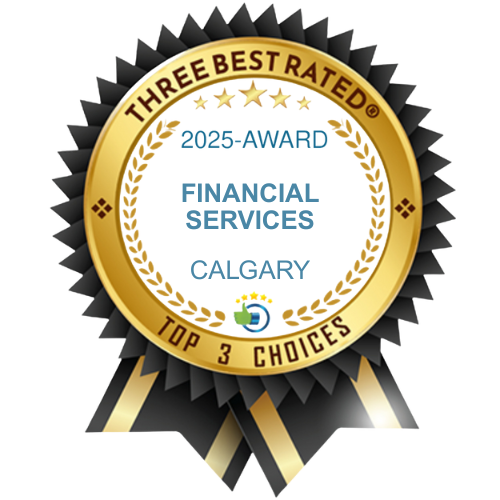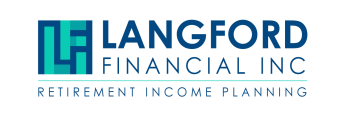The oldest book in the world has a proverb that says, “A good person leaves an inheritance for their children’s children”.
A few years ago my parents called one day to inform me that they had sold their home and was giving all 9 children an inheritance. I used my portion to get laser eye surgery and buy a new dining room set. Every day that I walk around without the aid of glasses I’m reminded of the legacy they gave to me.
If leaving an inheritance is important to you, then it only makes sense to structure your assets in such a way as to be able to draw an income from them during your lifetime and then pass them on to the next generation to enjoy - without any squabbling. If it makes sense to leave something, then it would only be reasonable to conclude that it needs to be done properly.
The sad truth is that most people do little estate planning until after the fact and there’s so much pain and expense that could have been avoided.
Common mistakes with an inheritance:
Improper beneficiary designations
We see this one all of the time. We called an older gentleman one time to update his life insurance policy and found out that his beneficiary was his ex-wife, with whom he had been divorced for 25 years.
There’s a difference between a revocable and an irrevocable beneficiary.
Revocable means that if you change your mind, or your circumstances change you can choose a different beneficiary. The only way you can remove an irrevocable beneficiary is if the actual beneficiary voluntarily signs to be removed.
No contingent beneficiary, which means your estate becomes the beneficiary, which means the insurance or investment proceeds become a part of your estate and must pass through probate.
Probate is not a dirty word, it just requires time and a process. Often it can take months or even years. In the meantime, the inheritance you had intended for your family or for a charity is tied up and is also subject to probate, legal and executor fees.
RRSP and RRIF beneficiaries. CRA allows for a tax-free rollover of these accounts to a qualified spouse or to qualified beneficiaries such as minor dependants or adult children with disabilities who rely on you for financial support. Understand that it is a tax-free rollover and the proceeds of the RRSP or RRIF will be taxed in their hands as they take income from the investment.
Unintended consequences:
Many parents fail to realize how one decision can impact another area of their planning. Imagine you have 2 children and you decide to give one child your family home (Value of $400,000) and the other your RRSP ($400,000). The home is a tax-free gift, but the RRSP is a taxable disposition, which will be taxed at your overall tax rate in the year of death, in Alberta that could be as high as 48% or $192,000; not so fair after all.
It gets worse: If you gave the RRSP to one of your children, who pays the tax bill? Your estate representative (Executor) is still responsible to pay the tax and if there isn't enough money from within the estate to pay the tax then the law states that the RRSP beneficiary must come up with the money. Section 160.2(1) of the Income Tax Act, when an estate does not have enough money to fund the tax liability created by the RRSP disposition at death, RRSP beneficiaries are “jointly and severally liable” for the excess liability in proportion to the amount attributable to the benefits received.
You can save a lot of money, time and aggravation with proper beneficiary designations.
Estate Liquidity:
After the funeral, it may take months for an estate to go through probate, pay all of the creditors, file income tax returns and then be ready to be distributed to the beneficiaries. During that time, the utilities still have to be paid, maintenance has to be completed, postage has to be paid and many other expenses pile up. The executor needs money to look after the estate.
There may be a million dollars in the estate, but unless it is accessible, there's a problem. A part of planning requires that there is an ample supply of cash for the executor to work with. If there are dependent children this is especially crucial.
One of the best ways to provide liquidity is with life insurance proceeds, or a segregated fund, which are paid out quickly upon death. These types of funds are used regularly for estate planning because they are creditor protected, avoid probate and they can have a named beneficiary that receives the proceeds quickly after death and can provide the necessary liquidity.
Property ownership:
In Canada, personal property is typically owned either personally or jointly. If jointly, it can be owed as "joint with rights of survivorship" or "tenants in common".
Joint with rights of survivorship: In simple terms, it means that the 50% ownership interest of one partner automatically flows to the other owner upon death. Most couples choose this ownership structure with their property so that upon death the property flows to the surviving spouse.
Tenants in Common: The joint owners own their respective percentage of the property and upon death, their estate or named beneficiary owns their interest. Their interest would be a taxable disposition upon death and the benefactor would be responsible for the care of their percentage of the property.
If I owned a rental property with my friend Alvin as tenants in common and I was to die, my named beneficiary would be the new owner and if there is a gain in value on my part of the ownership, my estate has to pay taxes on that gain.
There’s almost always a lot of confusion and complexity related to property owners within will and estate planning, mostly due to the fact that people do not update their plans as changes take place. Many people think they can save money by not using a Lawyer or legitimate legal service to properly complete their will and estate plans only to find out after death that the costs and time are far greater to sort out after the fact.
Trust Planning
I’m not an expert on Trusts but I know enough to recognize when one should be considered. If you have a sizeable estate, do you want your 20-year-old children to be the beneficiaries of large sums of money? A trust structure can be set up to distribute the proceeds of your estate at a certain age or over a certain period of time. You can set up a trust to care for aging parents, minor children, and adult children with disabilities.
Trusts are not as complex as they may appear and provide a great way to structure your affairs in a tax-efficient manner. The help of an Estate Lawyer is important to ensure that the trust is set up correctly.
Business Succession Planning
The successful business owner has unique needs that will require specialized planning. I will say that ‘nothing is as simple as it seems. There’s a price for success. The business owner needs to be aware of the share structure within their corp., how to complete an “Estate Freeze”, a buy/sell agreement in place if there is a partnership, a shareholder’s agreement, corporate-owned assets, and lastly the tax consequences upon exit of the business. There are 3 ways you can leave your business: get forced out, get carried out, or walk out on your terms. The more planning you do, the more favourable terms you can negotiate and the less tax you’ll pay.
Conclusion
Don’t squander your estate because of a lack of planning.
Learn more about our fee-only retirement planning that incorporates a comprehensive written plan outlining all of the ideas and strategies for you in regard to proper income, investment, tax, insurance, and estate planning as you transition into retirement.
Retirement Income, Investment, & Tax Planners,
Willis Jb Langford BA, MA, CFP
Nancy Langford CRS
Note: This content is up to date as of the time of writing and is provided for information purposes only and should not be relied upon to make important financial planning decisions. Please consult us or a qualified professional to discuss your unique circumstances.







